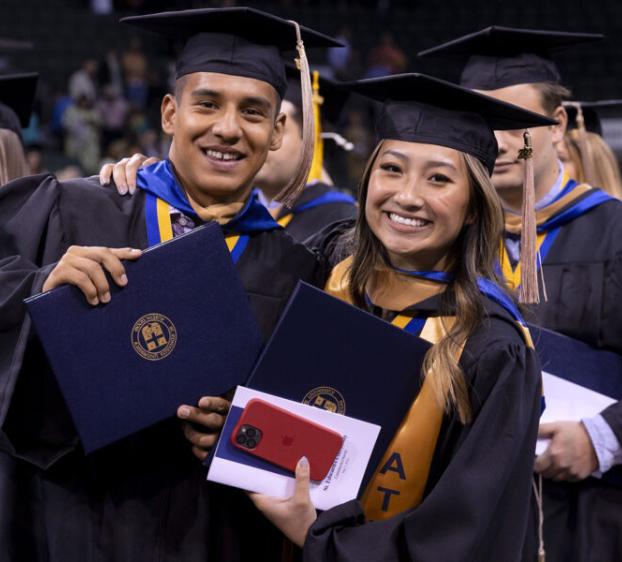Build a Better Future with a Degree in History
As a History major, you’ll study diverse cultures and eras of the past while learning research, analysis and communication skills and developing a strong sense of ethics about how information is used.
Explore the history of the civil rights movement, wars of the 20th century, Middle East history, radicals and reformers and much more as you journey down a path toward becoming an engaged citizen and making your voice heard.
By studying the people, events and ideas of the past, you’ll gain an understanding of issues that face society today — in the United States and globally. You’ll learn how to better understand people whose lives, cultures and beliefs differ from yours. These skills and understanding are attributes of the accomplished historian and are widely valued by employers and graduate schools. Knowing how to think historically will help you become a better leader and succeed in various careers.
Why earn your History degree at St. Edward's?
Whether you’re looking to pursue a career in library or archival work, museum curation, international business, diplomacy, teaching or analyzing historic events, one thing is certain: The advantages of your St. Edward’s education will prepare you to succeed. You’ll find opportunities in and outside the classroom to learn, give back and achieve your goals. And your mentors will support you every step of the way.
Conduct graduate-level research
History majors will conduct research supervised by one of your professors to present at the St. Edward’s Symposium on Undergraduate Research and Creative Expression or at a professional conference.
Build relationships with your professors
You’ll learn in small classes taught by award-winning professors who make a point of getting to know you and becoming your trusted advisors. They’ll help you identify and focus on your goals, and provide guidance and insight during and after your college years.

Reap the Rewards of Austin
As a History major, you will have access to internships offered at dozens of museums, archives and research libraries across the fast-growing city of Austin.
What do our graduates do?
History majors go on to a variety of careers and graduate schools from St. Edward’s. Here’s a sample.
- Archivist for the Texas State Archives and Library Commission
- City attorney
- Graduate student in the Master of Arts in Museum Studies at George Washington University
- English Teaching Assistant in the Fulbright U.S. Student Program
- Law students at The University of Texas at Austin and Duke University
- Teach for America corps member
- Social Studies teachers at area middle and high schools
Explore Details About a Degree in History
Major Requirements: The Bachelor of Arts in History requires 37 hours of History major courses, which include introductory courses in U.S. and World history, and advanced courses in U.S., European, and World History. Through these courses students build skills that help prepare them for future interests in a broad range of career fields.
Electives: In addition to History classes, students complete 29 hours of elective courses in any area of study they choose. These courses do not have to relate to the History major.
General Education Requirements: The History degree requires up to 54 hours of general education courses that students complete over four years in addition to their major courses and electives.
View and download the full degree plan for our History major (PDF).
A few examples of courses students in this major take:
- Introduction to Historical Methods – This class is designed to introduce students to how historians think, argue, research and write. The course will engage in a shared research project which will vary by semester.
- Civil Rights and Social Wrongs – This course is a survey of post-WWII movements for Civil Rights in the United States. The course explores issues of power, race, gender, and class in U.S. society.
- Wars of the 20th Century – This course will investigate causes and consequences of conflict focusing on how people understood a particular conflict and how it impacted different populations.
Research Opportunities
Students majoring in History are challenged to pursue research projects. You’ll be required to produce research papers in particular subjects and will have multiple opportunities to produce work worthy of presentation.
Delve into Professional Research Methods
As you progress through your coursework, you are trained in historical methods where you learn how historians think, argue, research and write. You’ll learn how to design a research project, frame a key question of inquiry, locate primary and secondary sources, read them critically, reach an evidence-based interpretation, and present your work. You’ll discover how historians draw on other disciplines such as statistics, psychology, sociology, economics, anthropology and political science.
Access Historical Archives
Austin has a large number of archives and other sources of historical materials for students to use. This provides firsthand experience with archival materials. The Introduction to Historical Methods course and the Senior Research Seminar both invite students to use local archives, such as those at the Lyndon B. Johnson Presidential Library, the Briscoe Center for American History, the Texas State Archives and the Austin History Center. In these classes, you’ll engage with materials produced by the people in the era you are studying. You’ll learn how to use original documents from this time period to inform your historical projects.
Present Your Work at Conferences
As a History major, you may present at conferences such as the World History Association of Texas, Phi Alpha Theta (history honor society) and St. Edward's Symposium on Undergraduate Research and Creative Expression (SOURCE).
Apply for Prestigious Fellowships
Current students have the opportunity to apply for the McNair Fellowship. Our graduates have also been awarded the prestigious Fulbright Scholarship.
Learn by Doing
By interning with an organization focused on the preservation and teaching of history, you’ll improve your research and organizational skills and get a firsthand look at the complex decisions that are part of historical interpretation. History students have recently interned at the following:
- Texas Historical Commission
- Washington Center Internship Program
- Texas General Land Office
- Texas Military Forces Museum
- Bob Bullock State History Museum
- Texas State Cemetery
- Texas State Library and Archives Commission
- Texas State Historical Commission, Archeology Lab
Connect with peers and professionals who share your interests. Get involved with student organizations on campus that support your goals. Learn and work together to promote the study of history. Attend networking events and workshops, and hear from guest speakers.
Hilltop Historians (History Club)
The Hilltop Historians facilitate fellowship among students with an interest in any aspect of history. Through bi-monthly events, the club promotes historical awareness and preservation through academic meetings and movie nights.
Phi Alpha Theta (PAT)
Phi Alpha Theta is a professional society that promotes the study of history through the encouragement of research, good teaching, publication, and the exchange of learning and ideas among historians. The organization brings together students, teachers and writers of history for intellectual and social exchanges, which promote and assist historical research and publication by their members.
Students who wish to broaden their knowledge of history are encouraged to pursue a minor in History. Take the Introduction to Historical Methods class and 15 more hours of courses on topics of your choosing, 9 of which are upper division.
To get a History minor, students must complete 18 total hours of coursework.
Required Coursework (18 hours):
- Introduction to Historical Methods (required)
- Five History elective courses, with at least three upper-division courses
At St. Edward’s, our faculty are outstanding scholars, thought leaders, teachers and mentors who bring energy and enthusiasm to our vibrant learning community. They take pride in getting to know you, helping you achieve your goals and celebrating your successes.
View a list of our faculty members and their contact information on the Department of History and Leadership webpage.

Earn Two Degrees in Five Years
With our Accelerated Graduate Pathways, you can complete your BA in History and one of three master’s degrees in as little as five years, saving time and money. See details and requirements.
- History to MS in Organizational Leadership
- History to Master of Business Administration (MBA)
- History to MS in Business Analytics
Success coaches and academic advisors guide you through undergraduate and graduate courses to maximize benefits.
